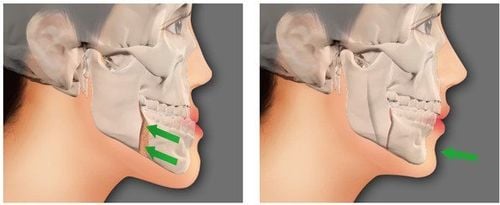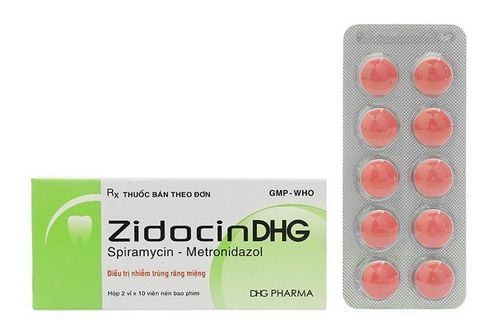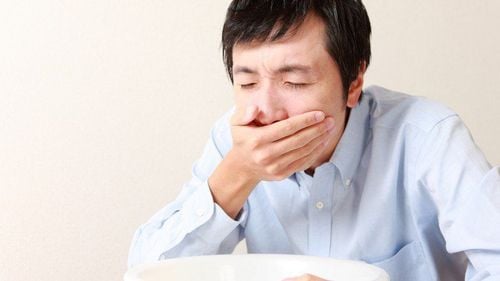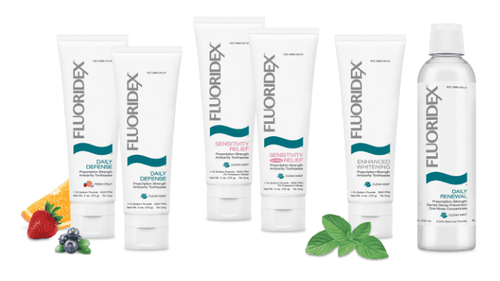This is an automatically translated article.
To keep your teeth clean, fragrant and bright, brushing your teeth is not enough. In fact, you should learn some other methods to protect your oral health, thereby preventing the risk of tooth decay, periodontitis, and even oral cancer.1. Periodic dental visits
The American Dental Association recommends that each person spend about 2 times a year for a dental visit. This will help you detect problems such as gum disease, tooth decay, trauma, and oral cancer in the early stages, so you can treat them promptly before they become life-threatening complications.
2. At what age should attention be paid to oral health care?
Toddlers and a large part of the elderly tend to be less interested in oral health care. However, the reality shows that they are the subjects who need to take care of their teeth as carefully as other subjects.
Children should see the dentist when they are one year old, and until the child is more independent, parents can teach children the habit of cleaning and taking care of their own teeth. For older adults, arthritis can make brushing and flossing more difficult.

Tập cho trẻ thói quen vệ sinh răng miệng càng sớm càng tốt
Moreover, as age increases, the amount of saliva produced also decreases, increasing the risk of tooth decay in the elderly, even this condition is uncomfortable for those who have to wear dentures.
3. Avoid soda drinks
Most sodas contain two ingredients, phosphoric acid and citric acid, which can erode the surface of your teeth. If you use more than 1 can of soda a day, it will make tooth enamel weak, yellow and more susceptible to tooth decay. Instead of using sugary drinks or soda, you can switch to water flavored with oranges, tangerines or mint leaves.
4. Limit foods high in sugar
Sugar is the leading culprit for tooth decay, because it provides a food source for harmful bacteria and increases the amount of acid inside your mouth. This can lead to the formation of plaque and erosion of tooth enamel as well as adversely affect your gums.
To prevent the risk of facing tooth decay, it is best to try to cut down on foods that contain a lot of sugar, and brush and floss after every meal, including snacks. .

Thực phẩm chứa đường khiến men răng dễ bị hỏng
5. Quit smoking habit
Leading experts in the field of oral health care in the world all recommend that people who regularly smoke cigarettes, including smokeless tobacco, should change or give up this negative habit.
Cigarettes contain countless substances harmful to health, including nicotine and tar (tar), which not only turns your teeth into an unsightly yellow but also erodes gums over time. In addition, smoking also creates an environment ripe for harmful bacteria to grow inside the mouth and cause plaque to appear on the teeth or along the gum line.
This also greatly affects the tissues, degenerating the bone that supports the teeth, even increasing the risk of tooth loss. Worse, the chemicals found in cigarettes also contribute to oral cancer.
6. Use the right toothbrush
You should choose a brush with soft bristles to avoid damaging your gums. Ideally, you should change your toothbrush about every 2-3 months. When you notice the bristles curl up, it's time to change to a new brush.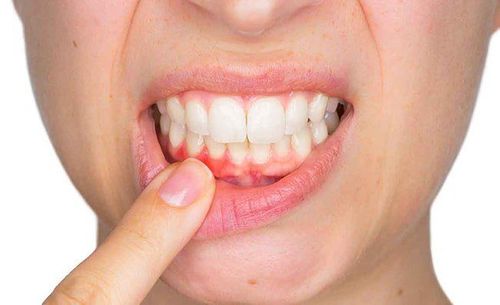
Đánh răng đúng cách để tránh làm lợi bị tổn thương
7. Clean teeth properly
Dentists often recommend that people brush their teeth at least twice a day, but not everyone knows how to properly clean their teeth.
When you start brushing, hold the toothbrush at a 45-degree angle, towards the gum line and make gentle, slow brush movements. You should brush your teeth 10-15 times each time, but do not brush too hard because it can damage your teeth and erode your gum line.
8. Use dental floss
In fact, flossing is very useful in protecting healthier teeth and gums. However, similar to using a toothbrush, improper use of floss can also cause friction and damage the gum line.
Before flossing, take about 45cm of thread, then roll it around 2 middle fingers and 2 inches between fingers. For each tooth, you should switch to a new piece of floss, and hold the floss firmly with the teeth and move it up and down gently to remove plaque on the teeth.
Customers can directly go to Vinmec Health system nationwide to visit or contact the hotline here for support.
Reference article source: webmd.com





